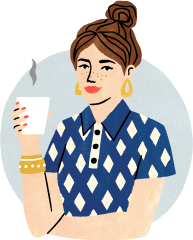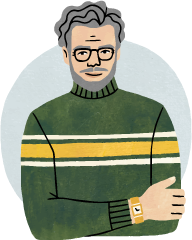Treatment Centers in 33904

Depression is a general term that encompasses several depressive disorders. Common symptoms of depression include extreme sadness, diminished energy, loss of interest in significant activities, disrupted sleep patterns, problems with focus or concentration, and a pervasive sense of worthlessness or helplessness. Criteria for a diagnosis of a specific depressive disorder are typically related to the onset, severity, and duration of these symptoms. Depression is a common condition, affecting an estimated 7% of the adult population every year. It is also a treatable condition. Most people who struggle with depression can benefit from various forms of therapy, often in combination with certain prescription medications. Individual, group, family, and experiential therapies have all proven to be effective treatments. During therapy, participants can identify issues that may have contributed to their depression, address how depression has impacted their lives, learn to recognize triggers, and develop techniques to manage their symptoms. With effective personalized care, a person who has been experiencing depression can achieve and sustain significant improvements in quality of life.
Depression is a general term that encompasses several depressive disorders. Common symptoms of depression include extreme sadness, diminished energy, loss of interest in significant activities, disrupted sleep patterns, problems with focus or concentration, and a pervasive sense of worthlessness or helplessness. Criteria for a diagnosis of a specific depressive disorder are typically related to the onset, severity, and duration of these symptoms. Depression is a common condition, affecting an estimated 7% of the adult population every year. It is also a treatable condition. Most people who struggle with depression can benefit from various forms of therapy, often in combination with certain prescription medications. Individual, group, family, and experiential therapies have all proven to be effective treatments. During therapy, participants can identify issues that may have contributed to their depression, address how depression has impacted their lives, learn to recognize triggers, and develop techniques to manage their symptoms. With effective personalized care, a person who has been experiencing depression can achieve and sustain significant improvements in quality of life.

Park Royal Hospital provides a partial hospitalization program (PHP) for adults age 18 and older who are struggling with mental health concerns. This outpatient level of care offers a structured environment in which patients receive treatment, and then they return home when sessions aren’t taking place. In our PHP, we treat patients who have depression, anxiety, bipolar disorder, schizophrenia, schizoaffective disorder, other mental health concerns, and co-occurring substance use disorders. Patients in our PHP participate in evidence-based treatment five days a week, engaging in five groups per day. Typical length of stay is two weeks, though that depends on each patient’s individual progress. Licensed therapists conduct all group therapy sessions, which utilize modalities such as cognitive behavioral therapy (CBT), dialectical behavior therapy (DBT), the 12-Step recovery model, and motivational interviewing. Within these processing and psychotherapy groups, topics may include relationship boundaries, stress management, grief and loss, anger, and communication. Weekly art therapy and medication management services are also available.
Park Royal Hospital provides a partial hospitalization program (PHP) for adults age 18 and older who are struggling with mental health concerns. This outpatient level of care offers a structured environment in which patients receive treatment, and then they return home when sessions aren’t taking place. In our PHP, we treat patients who have depression, anxiety, bipolar disorder, schizophrenia, schizoaffective disorder, other mental health concerns, and co-occurring substance use disorders. Patients in our PHP participate in evidence-based treatment five days a week, engaging in five groups per day. Typical length of stay is two weeks, though that depends on each patient’s individual progress. Licensed therapists conduct all group therapy sessions, which utilize modalities such as cognitive behavioral therapy (CBT), dialectical behavior therapy (DBT), the 12-Step recovery model, and motivational interviewing. Within these processing and psychotherapy groups, topics may include relationship boundaries, stress management, grief and loss, anger, and communication. Weekly art therapy and medication management services are also available.

Park Royal Hospital in Fort Myers, Florida, offers personalized inpatient treatment for adults age 18 and older. Our hospital serves patients who have anxiety, depression, bipolar disorder, adjustment disorders, schizophrenia, schizoaffective disorder, posttraumatic stress disorder (PTSD), other mental health concerns, and co-occurring substance use disorders. Inpatient treatment is a short-term program. Patients stay for an average of seven to 14 days, with the goal of stabilizing so that they can return home or step down to a lower level of care. During their stay, their treatment may include medication management services, basic medical care, detoxification, group therapy, and family therapy. Our team works closely with each patient to explain the benefits and purpose of each service. Each patient receives a comprehensive aftercare plan at the conclusion of treatment that contains resources, follow-up information, and ongoing care suggestions to support their continued progress.
Park Royal Hospital in Fort Myers, Florida, offers personalized inpatient treatment for adults age 18 and older. Our hospital serves patients who have anxiety, depression, bipolar disorder, adjustment disorders, schizophrenia, schizoaffective disorder, posttraumatic stress disorder (PTSD), other mental health concerns, and co-occurring substance use disorders. Inpatient treatment is a short-term program. Patients stay for an average of seven to 14 days, with the goal of stabilizing so that they can return home or step down to a lower level of care. During their stay, their treatment may include medication management services, basic medical care, detoxification, group therapy, and family therapy. Our team works closely with each patient to explain the benefits and purpose of each service. Each patient receives a comprehensive aftercare plan at the conclusion of treatment that contains resources, follow-up information, and ongoing care suggestions to support their continued progress.

APN is a modern mental health practice in Naples, FL that exists to help you find your next step toward healing and recovery. Maybe this is your first time reaching out for help regarding whatever you're struggling with, and you have no idea where to start. We can help you figure that out with assessments that help us collectively hit a deep understanding of what treatment or therapy might serve you best. OR maybe you've been to a bunch of therapists or tried a whole host of medications, and you're feeling frustrated at how stuck you still feel and how far away healing still feels. We totally get that. And we can help.
APN is a modern mental health practice in Naples, FL that exists to help you find your next step toward healing and recovery. Maybe this is your first time reaching out for help regarding whatever you're struggling with, and you have no idea where to start. We can help you figure that out with assessments that help us collectively hit a deep understanding of what treatment or therapy might serve you best. OR maybe you've been to a bunch of therapists or tried a whole host of medications, and you're feeling frustrated at how stuck you still feel and how far away healing still feels. We totally get that. And we can help.

Welcome to Hazelden Betty Ford’s Florida drug rehab center in Naples, specializing in comprehensive inpatient and outpatient treatment for substance use and co-occurring mental health conditions such as depression, anxiety and trauma. The goal of treatment is to stabilize your health and equip you with the skills, resources and support you need to heal and thrive. At Hazelden Betty Ford, a multidisciplinary team—psychiatrists, nurses, mental health therapists, addiction counselors—works in concert to develop your personalized treatment plan and synchronize all aspects of your care. Unlike most other treatment centers, our psychiatrists, medical staff and counselors are available on site to provide continuous care and address your rehab needs as they arise. We also provide services, resources and support for your whole family’s well-being because we understand that families heal and grow best together.
Welcome to Hazelden Betty Ford’s Florida drug rehab center in Naples, specializing in comprehensive inpatient and outpatient treatment for substance use and co-occurring mental health conditions such as depression, anxiety and trauma. The goal of treatment is to stabilize your health and equip you with the skills, resources and support you need to heal and thrive. At Hazelden Betty Ford, a multidisciplinary team—psychiatrists, nurses, mental health therapists, addiction counselors—works in concert to develop your personalized treatment plan and synchronize all aspects of your care. Unlike most other treatment centers, our psychiatrists, medical staff and counselors are available on site to provide continuous care and address your rehab needs as they arise. We also provide services, resources and support for your whole family’s well-being because we understand that families heal and grow best together.

Joint Commission accredited and AHCA certified, Celadon Recovery Campus is a residential addiction treatment facility on the Caloosahatchee River in Fort Myers. Our beautiful campus offers healing, rest, discovery, and recovery. Celadon Recovery’s holistic approach for wellness is innovative, unique and unlike any hospital-type program. At Celadon, our residents are able to address mental health issues including PTSD, anxiety, depression, mood disorders, and more. We provide a full continuum of addiction and mental health disorder care in one resort-like setting. This includes detox, residential, PHP, IOP, OP, and continuing care / medication management. Our patient's are able to address many areas of mental health such as: Depression, Anxiety, Bi-polar Disorder, PTSD, mood disorders, phobias, substance use disorder, and more.
Joint Commission accredited and AHCA certified, Celadon Recovery Campus is a residential addiction treatment facility on the Caloosahatchee River in Fort Myers. Our beautiful campus offers healing, rest, discovery, and recovery. Celadon Recovery’s holistic approach for wellness is innovative, unique and unlike any hospital-type program. At Celadon, our residents are able to address mental health issues including PTSD, anxiety, depression, mood disorders, and more. We provide a full continuum of addiction and mental health disorder care in one resort-like setting. This includes detox, residential, PHP, IOP, OP, and continuing care / medication management. Our patient's are able to address many areas of mental health such as: Depression, Anxiety, Bi-polar Disorder, PTSD, mood disorders, phobias, substance use disorder, and more.

Agape Treatment Center offers a wonderful educational and therapeutic drug and alcohol rehabilitation experience in South Florida, which also includes services for co-existing disorders. Agape Treatment Centers understands the need for support and one-on-one care. Our rehabilitation center embraces a universal, unconditional love that transcends, that serves regardless of circumstances. We provide individuals all over the country with the opportunity to achieve the gift of lasting sobriety. Our evidence-driven therapy and counseling methods are based on a belief that each and every individual is worth living a joyous and rewarding life free from the bondage of addiction and mental health.
Agape Treatment Center offers a wonderful educational and therapeutic drug and alcohol rehabilitation experience in South Florida, which also includes services for co-existing disorders. Agape Treatment Centers understands the need for support and one-on-one care. Our rehabilitation center embraces a universal, unconditional love that transcends, that serves regardless of circumstances. We provide individuals all over the country with the opportunity to achieve the gift of lasting sobriety. Our evidence-driven therapy and counseling methods are based on a belief that each and every individual is worth living a joyous and rewarding life free from the bondage of addiction and mental health.
See more therapy options for 33904
FAQs - About Treatment Centers and Rehab
How can I find a treatment center in 33904?
The Psychology Today Directory has customizable search options that show potential treatment centers tailored to your location, including inpatient or outpatient, the types of insurance accepted, and even the programs the center specializes in. Finding the right treatment center can be vitally important, and the dropdown filters make it easier to find the best fit for you or your loved one.
How do treatment centers work?
There are treatment centers for individuals dealing with psychiatric issues as well as for those dealing with substance use or addiction, or who are dealing with both, also known as co-occurring disorders. The type of program that is right for an individual depends on their medical and mental health history, the severity of the issues they are dealing with, as well as their treatment goals. Individuals using the directory can filter to find a center best-suited to them based on their gender, the issues they are facing, such as addiction or a mental health condition, or the type of treatments they are seeking.
What is the difference between inpatient and outpatient treatments?
In an inpatient or residential treatment program, individuals receive treatment while living in a facility and have 24/7 access to care by medical professionals. There are various forms of outpatient treatment that offer different levels of care, including Intensive Outpatient Programs (IOPs) and Partial Hospitalization Programs (PHPs). PHPs tend to offer more time-intensive, supervised care than IOPs. Aftercare is another option that offers ongoing treatment for an individual recovering from substance use or addiction after they have achieved initial sobriety, which can take the form of either an inpatient or outpatient program.
How long is rehab?
Short term treatment usually lasts less than 30 days, while long term programs can last 60 days, 90 days, or longer, depending on the needs and goals of the individual and the structure of the program. Individuals searching for a treatment program in the directory can filter results by duration.
How much does rehab cost?
The price of treatment varies according to the length and type of service you search for, such as detox treatment, residential treatment, or outpatient treatment, as well as location and amenities offered. Non-profit centers are typically less expensive than private centers, but may have longer wait lists. Using the filters on the Psychology Today Treatment Center Directory can help narrow down which centers accept insurance plans, and, if so, which ones.
Does insurance cover rehab?
Health insurance typically covers rehab, but the extent of coverage depends on the particular policy, the treatment provider, and the needs of the individual. Individuals are encouraged to check with their insurance providers prior to entering a treatment program. Once you have confirmed coverage, you can use the Insurance filter on the Psychology Today Treatment Center Directory to find and contact centers that accept your insurance.
How do you get someone who refuses treatment into rehab?
It is important to convey compassion and understanding toward an individual dealing with an addiction problem. If a person refuses treatment at first, it’s important for their loved ones to continue to express their concerns in a kind and respectful manner, and to periodically encourage them to get help. It can take time for someone dealing with addiction to gain the motivation to make a change. In the meantime, it can be helpful for loved ones to set boundaries with the individual and educate themselves on the many treatment options that exist in order to have more informed conversations regarding recovery.



